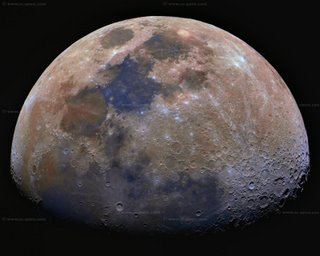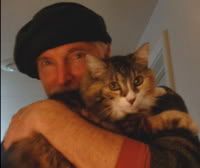The Finger Pointing at the Moon

I just finished reading The Universe in a Single Atom by The Dalai Lama.
It’s a very thoughtful and meticulously written book by a man who clearly reveres science along with its methods and accomplishments. And, of course, he is also one who understands the value of other ways of knowing. The branches of science discussed in this book range from quantum physics to the ethics of the new genetics.
The book advocates “a collaborative endeavor [between science and spirituality] that has far-reaching potential to help humanity meet the challenges before us.” Einstein had his famous “thought experiments.” The Dalai Lama proposes a series of experiments in “no thought,” if you will— experiments that combines the first person experiences of meditation with the third person data collection of modern scientific method and tools. We could, no doubt, find a rain forest of panaceas right between our ears with this sort of research.
Wouldn’t it be nice to know a few things about “the clear light of death,” for instance. His Holiness writes “My own teacher Ling Rinpoche remained in the clear light of death for thirteen days; although he was clinically dead and had stopped breathing, he stayed in the meditation posture and his body showed no signs of decomposition.” Such occurrences are certainly not unprecedented. The book mentions another meditator that left his body in death and “for seventeen days in the tropical heat of high summer in eastern India.” remained in a meditative posture without decomposing. There are worlds waiting to be explored. But they won’t be until science opens to the possibility of their existence.
The Dalai Lama emphasizes the common goals of science and spirituality. At their best, they both forge a ”union between wisdom and compassion.” At their worst, rigid and unaccountable to the interests of a fragile world, they can create hell on earth.
When scientific thought gets too full of itself, its quest for deeper truths gets sidetracked. The Dalai Lama writes. “…recognizing the limits of scientific knowledge, I believe, is essential. Otherwise our conception of the world including our own existence, will be limited to the facts adduced by science, leading to a deeply reductionist, materialistic, even nihilistic worldview.
“My difficulty is not with reductionism as such…The problem arises when reductionism, which is essentially a method, is turned into a metaphysical standpoint…a Buddhist text reminds us that when someone points his finger at the moon, we should direct our gaze not at the tip of the finger but at the moon to which it is pointing.”
So does your method of looking at the universe offer you the moon? Or just give you the finger?


0 Comments:
Post a Comment
<< Home